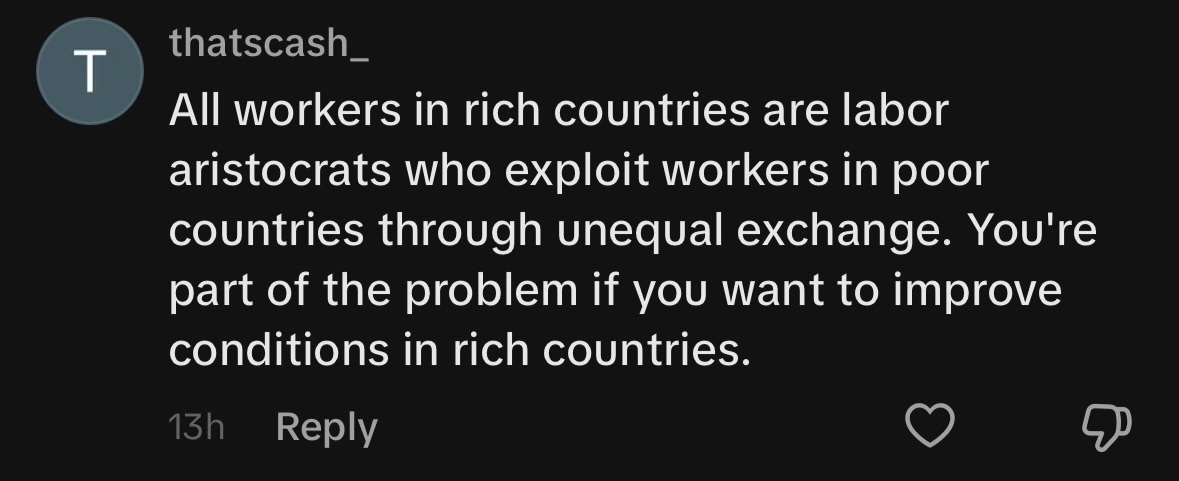this post was submitted on 29 Jun 2024
104 points (98.1% liked)
marxism
3678 readers
10 users here now
For the study of Marxism, and all the tendencies that fall beneath it.
Read Lenin.
Resources below are from r/communism101. Post suggestions for better resources and we'll update them.
Study Guides
- Basic Marxism-Leninism Study Plan
- Debunking Anti-Communism Masterpost
- Beginner's Guide to Marxism (marxists.org)
- A Reading Guide (marx2mao.com) (mirror)
- Topical Study Guide (marxistleninist.wordpress.com)
Explanations
- Kapitalism 101 on political economy
- Marxist Philosophy understanding DiaMat
- Reading Marx's Capital with David Harvey
Libraries
- Marxists.org largest Marxist library
- Red Stars Publishers Library specialized on Marxist-Leninist literature. Book titles are links to free PDF copies
- Marx2Mao.com another popular library (mirror)
- BannedThought.net collection of revolutionary publications
- The Collected Works of Marx and Engels torrentable file of all known writings of Marx and Engels
- The Prolewiki library a collection of revolutionary publications
- Comrades Library has a small but growing collection of rare sovietology books
Bookstores
Book PDFs
founded 4 years ago
MODERATORS
you are viewing a single comment's thread
view the rest of the comments
view the rest of the comments

I can't say I've ever heard that definition of value of labor power. I was under the impression that "value of labor power" meant the total value that a worker produces, part of which is appropriated by the capitalist as surplus value.
Why would capitalists pay these workers as much as, or more than, the value of their labor? That means you're getting zero or negative surplus value from them - in other words, the capitalist is either not making money or is actively losing money by employing them.
It's the definition Marx uses in Capital. The difference between value of labour power and the value of the products of labour is the source of surplus value. Marx himself invented the category of labour power; earlier economists thought that the employer buys labour.
First off so they can buy the commodities and avoid the horror of warehouses full of unsold goods. Second off because the trade unions won higher wages. Arghiri Emmamuel's Unequal Exchange looks at how that came about over the the 1860-1920ish period, then intensified after ww2.
This is exactly Cope's point; businesses in the global north are not profitable unless kept aloft by the superprofits